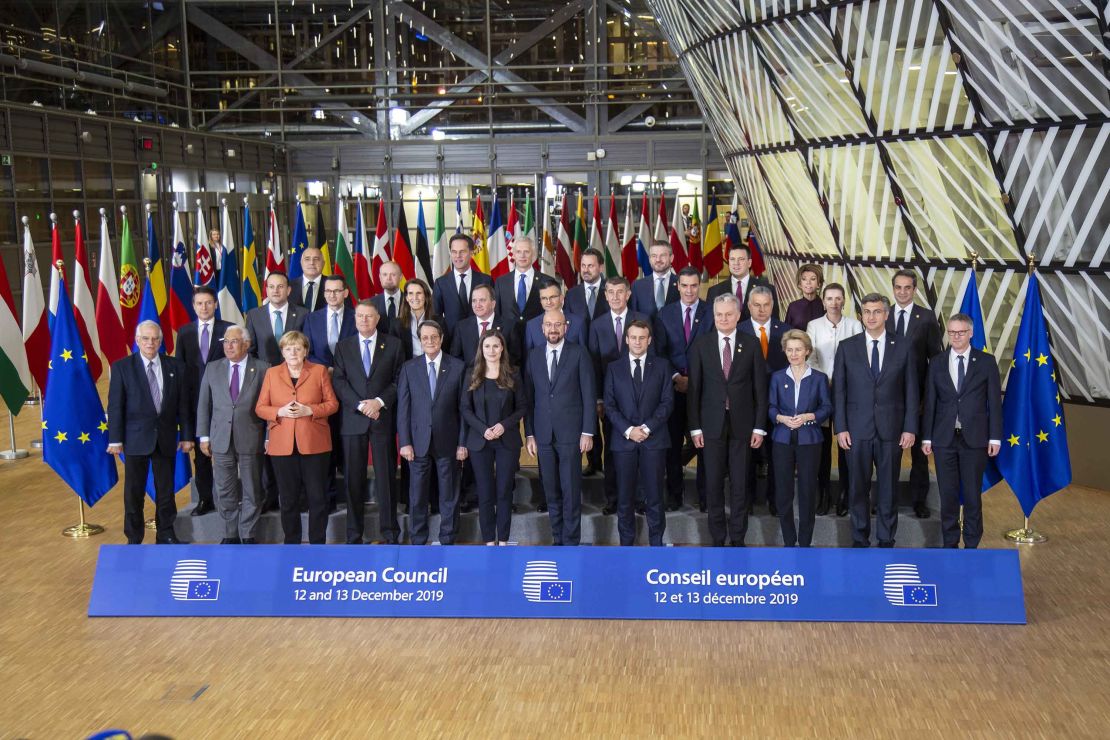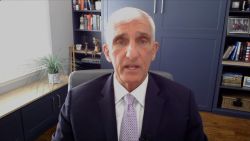When leaders from the European Council gathered for a group photo in Brussels last week, it was hard to miss the class newbie.
Standing front and center among the neat rows of middle-aged men was Finland’s new prime minister – 34-year-old Sanna Marin.
The young woman had a huge smile on her face. And why not, given her trailblazing new status as the world’s youngest sitting prime minister.
The former transport minister shot to worldwide fame earlier this month after the leader of her Social Democratic Party stepped down – and Marin stepped up, becoming the country’s youngest serving prime minister.
She now heads Finland’s governing coalition of five parties – all of which have female leaders, and almost all under the age of 35.

It’s a remarkable line-up, given the country’s leaders have traditionally been older men.
Marin’s youth and gender “make her stand out from her predecessors, that for the most part have been males in their 50s,” said Timo Miettinen, researcher at Helsinki University’s Department of Political and Economic Studies.
Finland was the first country in the world to elect women to parliament, a little over a century ago. In that time, there have been just two female prime ministers before Marin, each serving for no longer than a year.
Initially, many Finns were too embroiled in internal political strife (the previous prime minister resigned after nationwide industrial strikes) to make much of a fuss about Marin’s record-setting age.
But when the international press started weighing in, they took notice, said Miettinen.
“People have been saying it’s the best thing to happen to the international reputation of Finland,” he said.
“There is a sense of pride – at least among her supporters and people who support her coalition parties.”
Marin and her fellow coalition leaders don’t look like your average senior politicians. The new prime minister is a big Rage Against the Machine fan, and a photo of Marin and her all-female line-up was proudly shared on Instagram by the band’s guitarist, Tom Morello.
Rainbow family
Marin’s modest background doesn’t read like your average world leader’s either.
Her parents divorced when she was a small child “because of my father’s alcohol problem,” Marin wrote in a 2016 blog.
She grew up in a “rainbow family,” her mother in a same-sex relationship, in the Pirkkala region, north of Helsinki. They lived in a rented apartment and despite not having much money, Marin wrote that they had an “abundance” of love.
At 15, Marin’s first summer job was at a bakery, and at high school she distributed magazines to earn extra cash.
After graduating, she worked as a cashier – a role Estonia’s interior minister this week mocked, calling her a “sales girl” and questioning her ability to run the country.
Estonia apologized to Finland for the comments, made by the far-right EKRE party leader, Mart Helme.
Marin used the comments to her political advantage, tweeting: “I’m extremely proud of Finland. Here a poor family’s child can educate themselves and achieve their goals in life. A cashier can become even a Prime Minister.”
A divided country
Marin was the first member of her family to attend university. She entered politics at 20 and quickly moved up the ranks of the center-left Social Democratic Party. At 27 she was elected Tampere City Council leader, and three years later she became an MP.
Her politics sit to the left of her party – supporting increasing refugee intakes and raising taxes to support the welfare state.
With her humble background and humanitarian policies, some commentators have cast Marin as the antidote to other strongman world leaders. Many drew comparisons with New Zealand’s progressive Prime Minister Jacinda Ardhern, who took office at the age of 37.
Marin gives the impression “of a very principled person,” said Miettinen. “She doesn’t avoid tough questions and she does very well in political debates on television, which are a very big part of Finnish culture.”
The big challenge for Marin now, will be uniting her deeply divided Social Democratic party. The group has seen a split between its left-leaning, young, urban supporters – and traditional trade union working class living outside the cities.
Marin is “clearly affiliated” with the urban base, which could alienate the party’s traditional working class voters, said Miettinen.
And with the rise of the nationalist Finns Party, there is a real threat that they’ll attract disgruntled Social Democratic voters.
In recent years, traditional Social Democratic workers from factory towns have become unemployed as businesses moved away, Miettinen said.
There is now a “genuine threat” that “right-wing, populist, nationalist parties provide these people with at least a sense of being able to hold onto some kind of identity.”
Shortly after Marin became prime minister, the leader of the nationalist Finns Party, Jussi Halla-aho tweeted his congratulations – with an emoji of a bucket of popcorn.
“It was a way of sarcastically saying good luck with the future, because you will still have all the problems that you had before,” said Miettinen.
Now, the world will be watching how this record-setting prime minister tackles them.


















